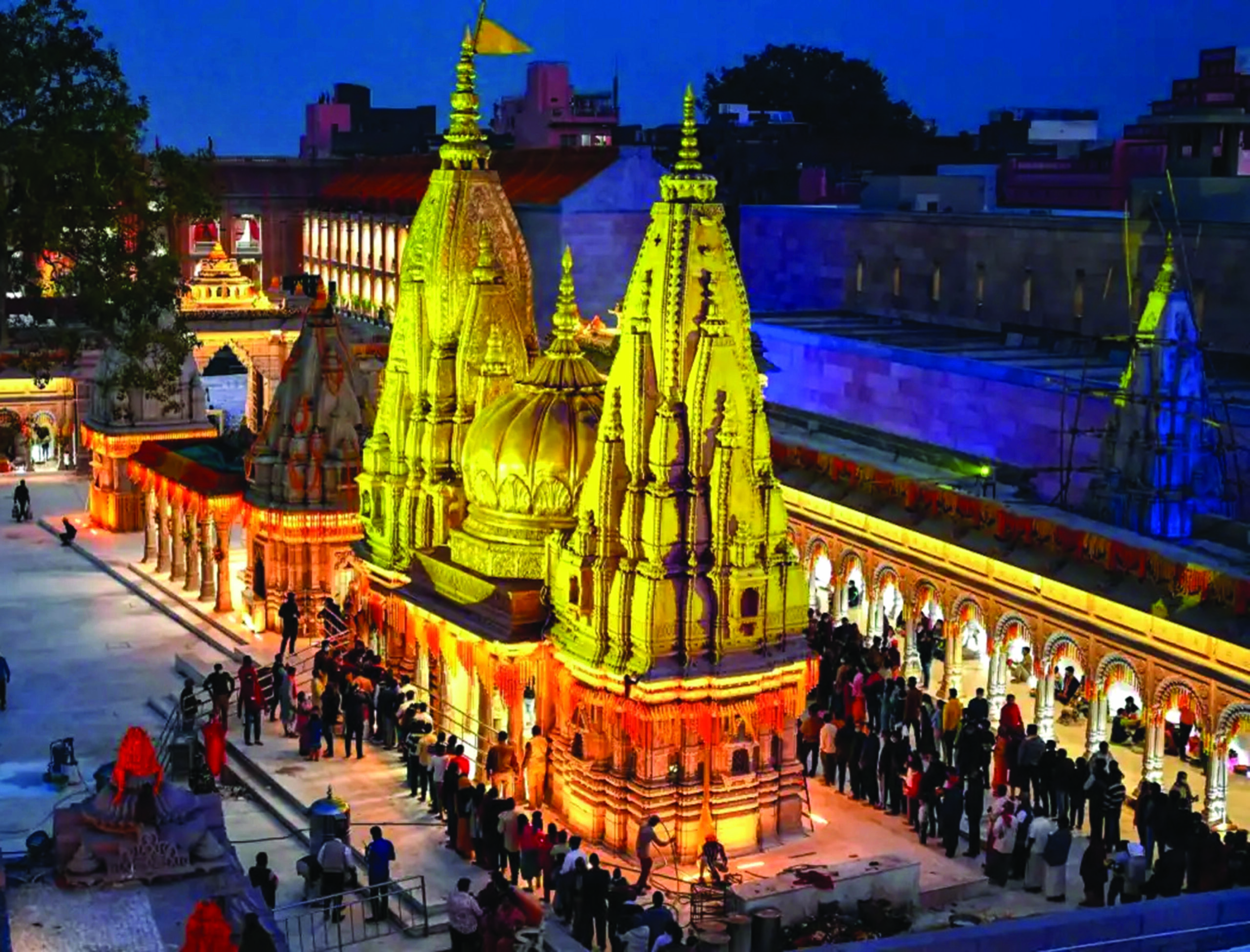Hindu Dharma is thought to be the oldest religion in the world. Not surprisingly, many of the ancient texts mention sciences and practices that are foreign to many, yet previously followed by Dharmic people worldwide. More than ever, Sanatana Dharma is important to practice in the modern world for a multitude of reasons.
In Sanatan Dharma, Karma is a nuanced ideal that claims that every action that humans make affects them in due time. Whether it be in the same life or the next, both a person’s good and bad actions affect the future. It guides the choices of millions of Hindus; however, in the recent modern era, Karma is being recognized as a universal rule all across the world. In its stylized form, Karma is the embodiment of the phrase “what goes around, comes around.” More astonishing is the fact that, unlike other Santhana Dharma concepts, Karma isn’t reduced to a media-promoted fragment of its true meaning. It sustains the basic moral of the definite effect of the plausibility of one’s circumstance being a consequence of their actions – and the realization that deeds hold weight – whether it be for others or oneself. Through the pursuit of positive Karma, righteousness, compassion, and good values are traits that are automatically instilled within a person. These traits are especially important in the global age when everyone has access to technology; the boundaries of what is socially and morally acceptable are blurred. The media is easily capable of manipulating facts into lies and spreading misinformation. Positive deeds reflect upon others, which both positively influence the world and oneself.

Dharma is a pillar of Sanatana Dharma and is a very important aspect of Hindu Dharma. Dharma is defined as one’s duty in life – a combination of spiritual discipline, moral values, and self-determination. While there are many different types of Dharma, arguably the one that is most relevant to people in the twenty-first century is swa-dharma, or dharma based on individual levels. Swa-dharma is like an instruction manual given to a person wherein the simple fulfillment of their roles and responsibilities properly leads to success in life. A student’s swa-dharma is to study. Likewise, a worker’s responsibility is to do his or her job well, and a guru’s responsibility is to impart knowledge on to their students or disciples. Fulfilling Dharma allows for the successful functioning of both a blossoming society and a person. Dharma is an ever-evolving concept; it changes based on the heartbeat of the community. For example, modern-day society might not require the father to be the provider of the household, but the mother as well. The concept of ‘dharma’ in a familial situation requires at least one parental figure to guide the child through the early stages of his or her life in today’s world, where before it used to be the jurisdiction of the mother. Basic swa-dharma does not have to fit ‘conventional’ standards, but only the duty that is expected from one for the fulfillment of their responsibilities.

The concept of “one Bhraman” is a beautiful theology presented in the earliest Hindu scriptures such as the Upanishads and the Vedas. The Upanishads, specifically, mention the existence of “sat-chit-ananda” (sat, meaning being; chit, meaning consciousness; and ananda, meaning bliss), which roughly translates to the state of being – a collective consciousness – when all beings come together in the Bhraman to form one, united consciousness. However, not everyone has the time or the ability to seek spiritual revelation through penance and seclusion. Sanatana Dharma maintains that, when everyone in the world performs righteous deeds, follows their duty, and works to make the world a better place (Dharma, Karma, and Seva), there is a collective grouping of similar mindsets formed. This sense of unity personifies the phrase “vasudhaiva kutumbakam” वसुधैव कुटुंबकम – which means the whole world is one family. Human beings are creatures that are ever-evolving, and while reaching a state of perfection is a tedious task requiring thousands of years of societal tweaking, practicing Sanatana Dharma encourages both Hindus and the people around them to become better people. Practicing Sanatana Dharma and the values it encourages maintains cultural identity within Hindus around the globe while promoting universal peace and prosperity altogether.




![[ India Today ] Ohio senator JD Vance thanks wife, a Hindu, for helping him find Christian faith](https://hinduvishwa.org/wp-content/uploads/2024/06/us-senator-jd-vance-reveals-how-his-hindu-wife-usha-helped-him-find-his-christian-faith-image-re-272530504-16x9_0-120x86.webp)










